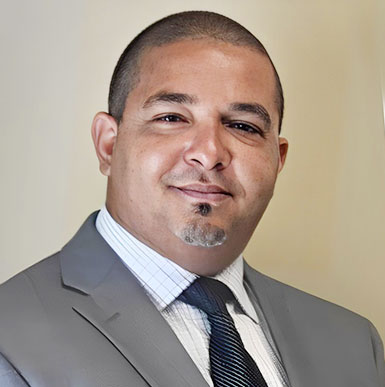When meeting with a personal injury lawyer, you’ll want to ask these seven critical questions: What’s your success rate with similar cases? Can you provide specific examples of comparable settlements? Who will directly handle my case day-to-day? What’s your typical timeline for reaching a settlement? How do you structure your fees and payments? Can you share references from past clients? What do you estimate my case is worth? These questions will help you evaluate the attorney’s experience, communication style, and ability to handle your claim effectively. Understanding their responses will give you valuable insights to make an informed decision about your legal representation.
What’s Your Success Rate

When evaluating potential personal injury lawyers, their track record of successful cases should be one of your top priorities.
You’ll want to ask specific questions about their success metrics, including the percentage of cases they’ve won, typical settlement amounts, and how many cases they’ve taken to trial versus settled out of court.
Don’t hesitate to request detailed information about case outcomes similar to your situation. Ask about their largest settlements or verdicts, but also inquire about their average settlements. This will give you a more realistic picture of what to expect.
Be wary of attorneys who guarantee specific results or claim to win 100% of their cases, as this isn’t realistic in personal injury law.
You should also ask about their experience with insurance companies and opposing counsel relevant to your case. Understanding how they’ve performed against specific insurance carriers or defense attorneys can provide valuable insight into their capabilities.
Remember to verify any success rate claims through independent sources, such as court records or client testimonials, whenever possible. This due diligence will help assure you’re choosing a lawyer with a proven history of achieving favorable outcomes for their clients.
Have You Handled Similar Cases
Understanding how frequently a lawyer has handled cases similar to yours provides essential insight into their expertise with your specific type of injury claim.
Their case experience with comparable situations directly impacts their ability to anticipate challenges, develop effective strategies, and negotiate advantageous settlements for you.
When discussing similar cases with a potential attorney, you’ll want to explore specific details about their case outcomes and practical knowledge. Ask them about cases they’ve handled within the last few years that mirror your circumstances.
Here are key points to discuss regarding their experience with similar cases:
- The number of cases they’ve handled that involve your specific type of injury (such as slip-and-fall, car accident, or medical malpractice)
- Their success rate in achieving favorable settlements or verdicts for those specific types of cases
- The average timeline and settlement amounts for cases comparable to yours
Don’t hesitate to ask for specific examples of how they’ve overcome challenges in similar cases.
This information helps you assess whether they’ve the specialized expertise needed to handle your claim effectively and achieve the best possible outcome.
Who Will Manage My Case

Beyond knowing your lawyer’s experience with similar cases, you’ll want clarity about who exactly will handle your personal injury claim. Many law firms utilize teams of professionals, and it’s essential to understand the case management structure that’ll be responsible for your legal matters.
| Role | Responsibilities | Your Interaction Level |
|---|---|---|
| Lead Attorney | Strategy & Oversight | Regular meetings, key decisions |
| Associate Lawyers | Research & Documentation | As needed for specific tasks |
| Paralegals | Case Organization & Filing | Frequent document requests |
Don’t hesitate to ask about attorney communication protocols and the chain of command. You’ll want to know if your primary contact will be the lead attorney or if you’ll mainly interact with support staff. Understanding who’ll attend court appearances, handle settlement negotiations, and manage day-to-day communications helps set realistic expectations.
It’s also important to clarify how updates about your case will be delivered and the expected response time for your questions. Some firms assign case managers who serve as your main point of contact, while others maintain direct attorney-client communication throughout the process. This information helps you gauge the level of personal attention you’ll receive during your case.
How Long Until Settlement
One of the most essential questions you’ll need to ask your personal injury lawyer concerns the expected timeline for reaching a settlement. The settlement duration can vary markedly depending on multiple factors, including case complexity, evidence availability, and insurance company cooperation.
Your lawyer should provide you with a realistic timeline based on their experience with similar cases and the specific circumstances of your situation.
The negotiation process typically involves several stages that affect the overall timeline:
- Initial investigation and medical treatment completion – Your lawyer won’t typically begin negotiations until you’ve reached maximum medical improvement.
- Documentation gathering and demand letter preparation – This includes collecting medical records, witness statements, and expert opinions.
- Back-and-forth negotiations with insurance companies – This can take weeks or months, depending on the complexity and resistance level.
While some cases might settle within a few months, others can take a year or longer.
Your attorney should explain potential delays, such as insurance company tactics or court scheduling issues, that could impact your case’s timeline. Understanding these factors helps you set realistic expectations for your settlement’s completion.
What Are Your Payment Terms

You’ll want to clearly understand your lawyer’s payment structure, which typically involves a contingency fee ranging from 25% to 40% of your settlement amount.
Ask about any upfront costs you’ll need to cover, such as court filing fees, expert witness fees, or medical record collection expenses.
Make sure you get specifics on when payments are due and how the settlement funds will be disbursed once your case concludes.
Contingency Fee Percentage Rates
Understanding how a personal injury lawyer charges for their services is vital before signing any agreements. Most personal injury attorneys work on contingency agreements, meaning they only get paid if they win your case. However, the percentage rates can vary considerably between law firms and case types.
When discussing fee structures with potential attorneys, you’ll want to understand these key aspects:
- The standard contingency fee percentage typically ranges from 33% to 40% of your settlement amount, but this can vary based on your location and case complexity.
- Some lawyers use a sliding scale where the percentage increases if the case goes to trial or requires additional litigation steps beyond initial settlement negotiations.
- You’ll need to clarify whether the percentage is calculated before or after case expenses are deducted from your settlement.
It’s imperative to get all fee-related details in writing and understand what expenses you’ll be responsible for, regardless of the case outcome.
Ask about court filing fees, expert witness costs, and medical record retrieval expenses. Don’t hesitate to negotiate these terms, as they can considerably impact your final compensation.
Upfront Costs Explained
Many potential clients wonder about their immediate financial obligations when hiring a personal injury attorney. While most personal injury lawyers work on a contingency fee basis, you’ll need to understand what expenses you might face before your case concludes.
Ask your attorney to explain which upfront costs, if any, you’ll need to cover. Common expenses include court filing fees, medical record retrieval costs, expert witness fees, and deposition expenses.
Some law firms will advance these costs and deduct them from your settlement, while others may require you to pay them as they arise.
It’s essential to clarify whether you’ll be responsible for these expenses if you lose your case. Request a detailed breakdown of anticipated costs and get confirmation in writing about who’ll cover various expenses throughout your case.
You should also ask about the difference between legal fees and case-related expenses, as they’re typically handled differently. Understanding these financial arrangements helps you avoid surprises and guarantees you’re comfortable with the payment structure before proceeding with your case.
Remember to get all financial agreements in writing as part of your representation contract.
Payment Timeline Details
When payment becomes due in a personal injury case often depends on the specific terms outlined in your representation agreement.
Most personal injury lawyers work on a contingency fee basis, which means they’ll receive payment only after successfully resolving your case. It’s vital to understand your lawyer’s payment schedule and payment methods before proceeding with your case.
You’ll want to ask your attorney these specific questions about payment timing:
- What percentage of the settlement will be taken for legal fees, and at what point in the process will these fees be deducted from the settlement amount?
- How are case-related expenses handled during the litigation process, and when will reimbursement for these costs be expected?
- Once the case settles, what’s the typical timeframe for disbursement of funds, and will payments be made in a lump sum or installments?
Understanding these payment details helps prevent surprises and guarantees transparency throughout your case.
Most law firms will provide written documentation of their payment terms, including when and how they expect to receive compensation for their services.
Make sure to get all payment agreements in writing before proceeding with representation.
Can You Share Client References
Requesting client references from a personal injury lawyer provides valuable insights into their track record and client satisfaction levels. When evaluating potential attorneys, you’ll want to gather feedback from previous clients to assess their experience and results.
| Reference Aspects | What to Take Into Account |
|---|---|
| Case Similarities | Look for references from cases similar to yours |
| Timeline & Results | Ask about case duration and settlement amounts |
| Communication Style | Inquire about responsiveness and clarity |
| Overall Experience | Seek feedback on professionalism and support |
While attorneys must maintain client confidentiality, many can provide references from clients who’ve agreed to share their experiences. You’ll want to ask specific questions about attorney credibility, communication frequency, and case handling. Some lawyers may also direct you to public reviews or testimonials on their websites.
Remember that while client references are valuable, they’re just one component of your evaluation process. It’s crucial to weigh these testimonials alongside other factors like experience, expertise, and your personal comfort level with the attorney. Don’t hesitate to request multiple references to gain a thorough understanding of the lawyer’s practice and client satisfaction track record.
What’s My Case Worth

When discussing your case’s potential value, you’ll want to understand the key factors that influence personal injury settlements, including medical expenses, lost wages, and pain and suffering.
Your attorney should explain how similar cases have resolved in the past, though each situation’s unique circumstances will impact the final outcome.
Ask for specific examples of settlements and verdicts they’ve achieved in cases comparable to yours, while recognizing that past results don’t guarantee future outcomes.
Settlement Factors and Variables
One of the most vital questions personal injury victims ask is “What’s my case worth?” The value of your claim depends on numerous interrelated factors that experienced attorneys carefully evaluate.
During settlement negotiations, your lawyer will assess concrete damages like medical bills and lost wages, while also considering less tangible impacts such as pain and suffering. Insurance factors, including policy limits and the insurer’s willingness to negotiate, greatly influence potential settlement amounts.
Your attorney will examine these important elements to determine fair compensation:
- Economic damages – Including current and future medical expenses, property damage, lost income, and reduced earning capacity
- Non-economic damages – Encompassing physical pain, emotional distress, loss of enjoyment of life, and permanent disability
- Circumstantial factors – Such as accident severity, clear liability evidence, witness credibility, and jurisdiction tendencies
The strength of your evidence, the skill of your legal representation, and the specific details of your accident all play vital roles in determining settlement value.
Understanding these variables helps set realistic expectations and strengthens your position during negotiations with insurance companies or opposing counsel.
Past Case Result Examples
Since past case results can provide valuable context, examining real settlement examples helps illustrate potential compensation ranges for different injury scenarios. Through case study analysis, you’ll gain insights into how similar claims have been resolved and what factors influenced their outcomes.
Ask your lawyer to share anonymized examples of cases they’ve handled that parallel your situation. For instance, your attorney might discuss a rear-end collision case that settled for $75,000 due to documented neck injuries and three months of lost wages. They could compare this to another case that reached $150,000 because of permanent disability.
Through outcome comparisons, you’ll understand how variables like injury severity, recovery time, and long-term impacts affect settlement amounts. Remember that while these examples are informative, they don’t guarantee identical results for your case.
Each claim has unique circumstances that influence its value. Ask your lawyer to explain the specific strengths and challenges of your case compared to their previous experiences. This analysis will help set realistic expectations and provide a framework for evaluating potential settlement offers.
Frequently Asked Questions
Will I Need to Testify in Court for My Personal Injury Case?
You may need to testify in court, but most personal injury cases settle before trial.
If your case does go to court, you’ll work with your lawyer on testimony preparation, learning what to expect during the courtroom process.
Your attorney will help you practice answering questions, maintain composure, and understand proper courtroom etiquette.
Don’t worry – they’ll guarantee you’re fully prepared if you need to take the stand.
How Often Will You Provide Updates About My Case Progress?
You’ll feel like you’re waiting a million years without regular updates about your case.
That’s why it’s essential to establish clear communication expectations with your lawyer from day one. Most attorneys will update you monthly and at significant case milestones, such as filing deadlines, settlement offers, or court dates.
You can also request specific communication frequency preferences, whether it’s weekly emails, monthly calls, or immediate updates for major developments.
What Documents Should I Gather to Strengthen My Personal Injury Claim?
You’ll need to gather several key documents for evidence collection.
Start with your complete medical records, including emergency room visits, doctor’s notes, treatment plans, and bills.
Collect police reports, accident scene photos, and witness statements.
Document your injuries with photographs and keep a daily pain journal.
Save all correspondence with insurance companies and maintain receipts for injury-related expenses.
Also gather employment records if you’ve missed work.
Should I Talk to the Insurance Company Before Consulting You?
Like walking into a chess match unprepared, talking to insurance companies without legal counsel can put you at a serious disadvantage.
You shouldn’t speak with insurance adjusters before consulting an attorney because anything you say could weaken your position during insurance negotiations.
Insurance companies aim to minimize payouts, and they’re skilled at using your statements against you during the claim process.
Wait to discuss your case until you’ve received proper legal guidance.
Do I Have a Time Limit to File My Personal Injury Lawsuit?
Yes, you’re bound by strict filing deadlines known as the statute of limitations.
These time limits vary by state and type of injury, typically ranging from one to six years from the date of your accident.
If you don’t file within this timeframe, you’ll lose your right to pursue compensation.
Don’t wait until the last minute, as building a strong case takes time.
It’s essential to consult a lawyer promptly to understand your specific deadlines.
Conclusion
Just like Dorothy needed to ask the right questions before following the yellow brick road, you’ll want to arm yourself with these seven essential inquiries before choosing a personal injury lawyer. By addressing success rates, case experience, timelines, and costs upfront, you’re taking control of your legal journey. Remember, it’s your right to be thorough – after all, your case’s outcome will greatly impact your future.

